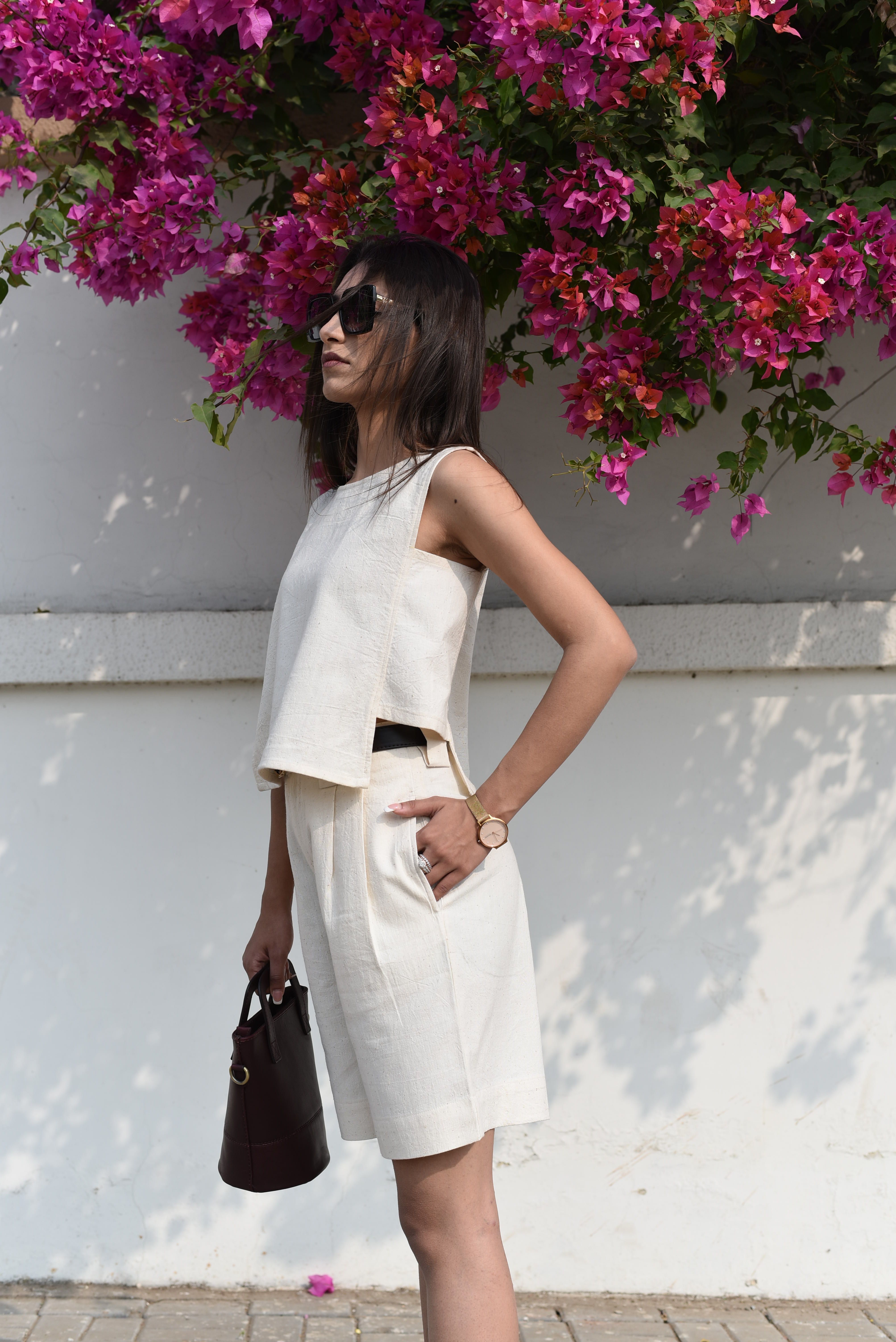An ardent believer of slow, sustainable living, the founder of our Brand Of The Month Rural Conversations, Richa Banjara, an alumnus of NIFT, Hyderabad, takes us through her journey of creating this brand by exploring how sustainability encompasses a diversity of fields and disciplines—Indigenous teachings, natural biodiversity, environmental science, social justice, mental and emotional health, that encourage people to expand their views of wellness to include the health of Earth.
With an innate love of our planet, including their people, she delved deep into better understanding nature’s science at a personal and societal level which equipped her with the foundational knowing that we must heal our troubled relationship with Earth for our wellbeing; regardless of, and even distracting from the ethics and sustainability of their practices. Collectively, the education she received from NIFT sharpened her critical thinking skills and gave her a solid and multifaceted basis of various textile techniques, surface development, print development, woven structures and handmade embroideries that she continues to build on today. Her products are a celebration of the Earth's bounty and a dedication to honor the intricate diversity within our ecosystem.
When asked about her brand’s mission, Richa said, “We hope to create an eco-friendly lifestyle with our efforts in maintaining balance in the business of fashion. Knowing that comfort doesn’t begin with our designs–it starts with the respect we show each other as a part of the process. From the soil our fibers are raised from, to our customers that welcome us into the most sacred parts of their lives, to be of service to our earth, our neighboring species and ourselves, We aspire to operate as clean as possible. Meaning, at each point in our technical development, we are continually working to minimize our footprint by reducing our use of natural resources, including our use of dyes, electricity, land and water. This is a goal we strive to achieve, yet it is a process that is capped by the development of our own capabilities, resources and timelines.
RURAL CONVERSATIONS - ‘We create fabric that creates fashion’
1. What was the inspiration and the idea behind your brand?
Founded in 2019, Rural Conversations is based on the concept of fibre to fashion using yarns that are handspun, naturally dyed and handwoven on pitlooms following a process that contributes to an ethical model of creation which is most considerate of humanity and the environment. We create different fabrics like Kala Cotton, Kora cotton and Khadi with weavers in Kutch and Surendranagar districts in Gujarat. Our silhouettes are simple, classic and minimal. They are the foundation of Rural Conversations as we focus on our efforts, we put into developing our fabric.
We believe in the philosophy of reviving Indian Handlooms - ‘Revival’ is a long process that is a function of time and quantifiable metrics. It requires many people to work in a given space over a period of time to ensure that the craft has enough demand for consistent employment. The introduction of machine made textiles as huge competitors to the handloom industry led to its downfall. Staying in different villages with various communities, I understood the importance of skill Indian Textile history carries and the support it needs to become the voice of contemporary fashion. Therefore, my brand caters to the development of handwoven textiles using traditional techniques of spinning, weaving and embroidery to create apparels that form an expression of relevance in global fashion.
2. Tell us a little bit about the name. How did you come up with it, what was your inspiration behind the logo and what does it signify?
As part of NIFT’s initiative to bring about a change where design developments are concerned, we were supposed to work on a craft cluster project to understand, address and document the issues faced by artisans. While traveling to the craft cluster of Mangalagiri, Andhra Pradesh, a dying craft because of its degradation over time, I learnt about the importance of a GI and how it’s necessary for every cluster in our country to have it.
Later in 2014, as part of my internship with designer Vaishali Shadangule in Mumbai, I worked on her first international collection for the NYFW, that included designing surfaces with yarns for hand-weaving and embroideries for surface development. The whole process gave me a broader perspective of the handloom industry and the wonders it can do as mixing yarns to create different fabrics is a risk in itself that might or might not be successful. This process required me to interact with weavers from various parts of the country for 15/20 days in a month. I was so attached to our roots that enjoying farm life made me name my brand - Rural Conversations.
The logo is a graphic version of a shuttle that is used during weaving. I’ve segregated the parts and drawn the logo myself. The logo signifies skill, balance and soul of developing any handwoven fabric just like the the shuttle, without which weaving is impossible.
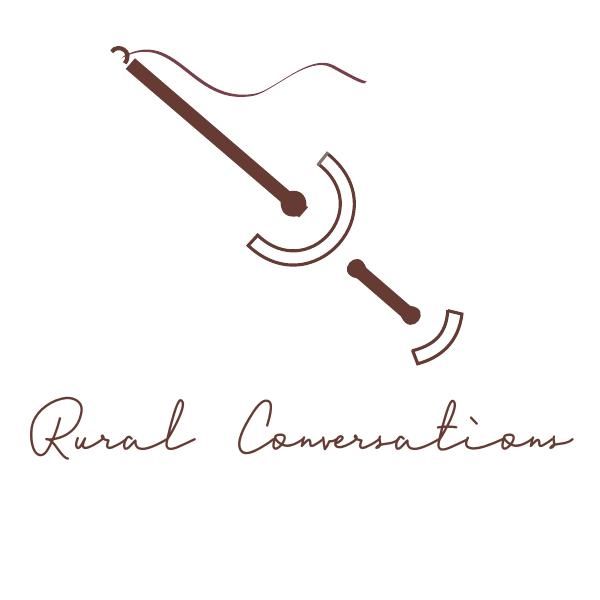
3. What is your vision for the brand?
I think the dichotomy between individual and systemic change is a false one, because there are ways that we can each go beyond making consumerist, lifestyle shifts to engage with collective efforts—that ultimately can lead to greater societal, systemic transformations.
For example, many are aware that across all industries and sectors, the centralization of power in the hands of a few acts as barriers to creating a more just and sustainable world. To address this, there are two primary ways of decentralizing power:
- to build mass people’s movements to confront those with and abusing power, and
- to support grassroots initiatives and community empowerment from the ground up.
Our goal is to work towards a system that does not leave a negative carbon footprint by promoting slow fashion and fair fashion empowering grassroots at every stage of development. We recognise our ‘karigars’ as partners, collaborators and equals. Since the whole family is involved in the process of weaving, every small step taken contributes to an effort of making a wearable piece of art/Textile. It creates employment opportunities for most of rural India because of its division in each sector.
4. What would you say is your USP and TA?
We think the USP of our brand is experimenting with natural dyes, handdyed on yarns and then developing fabrics in different designs using an earthy colour palette.Our yarns are handspun in different counts on the charkha (Spinning wheel) after sourcing cotton from the different farmers directly. We then get our yarns developed in different yarn counts like 20s, 40s and 60s. We also have a natural dyeing unit where we use a lot of ayurvedic herbs to develop different colours.Crafted amongst the ever changing landscape of Gujarat, each piece is small batch, cut, sewn, hand dyed, and one of a kind using only organic natural fibers, plantdyes, sweet incantations, and love.”
We’re based out of Ahmedabad and our target audience is from Ahmedabad mostly because we customize a lot of outfits. Our Instagram page rural_conversations provides us with a wider audience to cater to and has been pretty fruitful with getting orders. We plan to launch our website soon too.
5. Do you have a new collection in the works that you’d like to talk about?
As a matter of fact, we do. Our new collection is inspired from the work of a Japanese floral aesthete who has explored on preserving dried flowers and understanding structure, form, pattern and aesthetics. We’re developing prints inspired from Japanese blooms in collaboration with a textile artist - Nehal Desai from Ahmedabad.
We launched our capsule collection in the month of December 2021 to check how the online community would respond to it and we were overwhelmed at the way we’ve received support from the online community. Having made deliveries to Cochin, Hyderabad, Bombay, Delhi, Africa, Spain and Switzerland, we are proud to see our work going places.
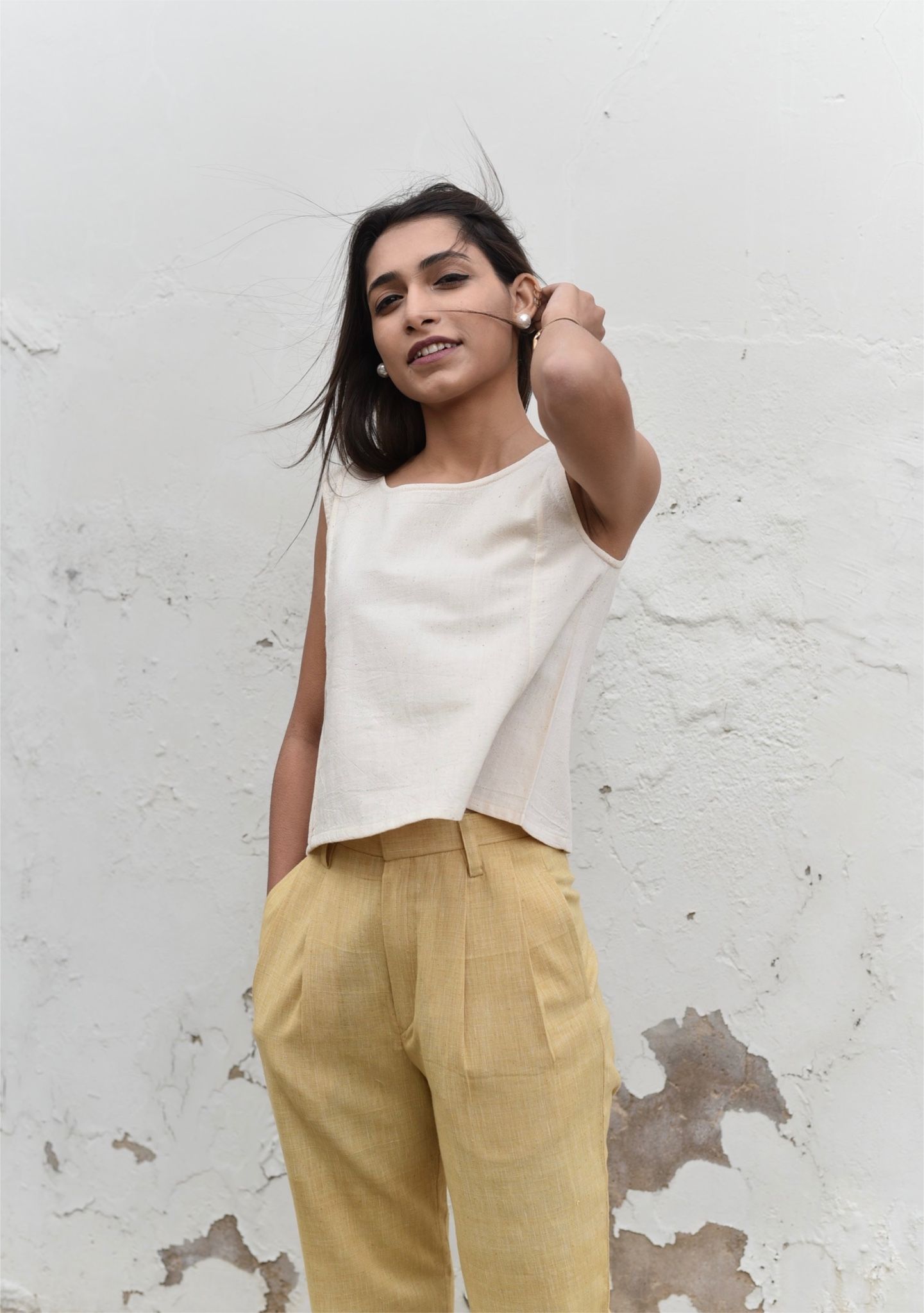
6. Any special highlights from your journey so far?
At Rural Conversations, fabric is something that we explore with a lot. Made from the indigenous cotton variety, our Kala Cotton is casually elegant with a timeless appeal. It is neither new, nor a recent discovery. As a type of desi cotton- a coarse, short staple variety, it was a significant part of India’s cotton export trade to Britain at the time of colonization.
We have loved to understand it’s reemergence with it’s rise, fall and potential comeback in competition to to the mass produced domestic cotton. As a crop, Kala Cotton is hardy, rainfed, resistant to drought and pests and requires little attention - making it an excellent organic crop to cultivate. From a weaving standpoint, it is laborious because of it’s short staple length but the textile produced is strong, soft to touch and tenacious.
We have explored our yarns counts in a single ply, two ply and a mix of the same because of it’s threefold potential.
1)It sustains farmer and artisanal livelihoods.
2) It’s inherent attributes and provenance can enrich India’s textile heritage-both past and present.
3)The desi varieties are, moreover, 5-6 months duration, as against 8 months of Bt hybrids. The shorter maturity allows for optimal use of moisture from the monsoon rains with an available time window. The natural dyeing technique allows us to create a range of 5-6 colours with Ayurvedic herbs like Kaatho, Manjistha, Kesudo, Mehendi, kaath nu paani and dhaavdi na phool.
Our catalog of fabrics has been designed for the export market. As of now we’re exporting to Europe, Africa, USA etc. Our collaborations with international brands, textile artists and designers has helped us gain new perspective on business developments, giving us great opportunities to showcase our work.
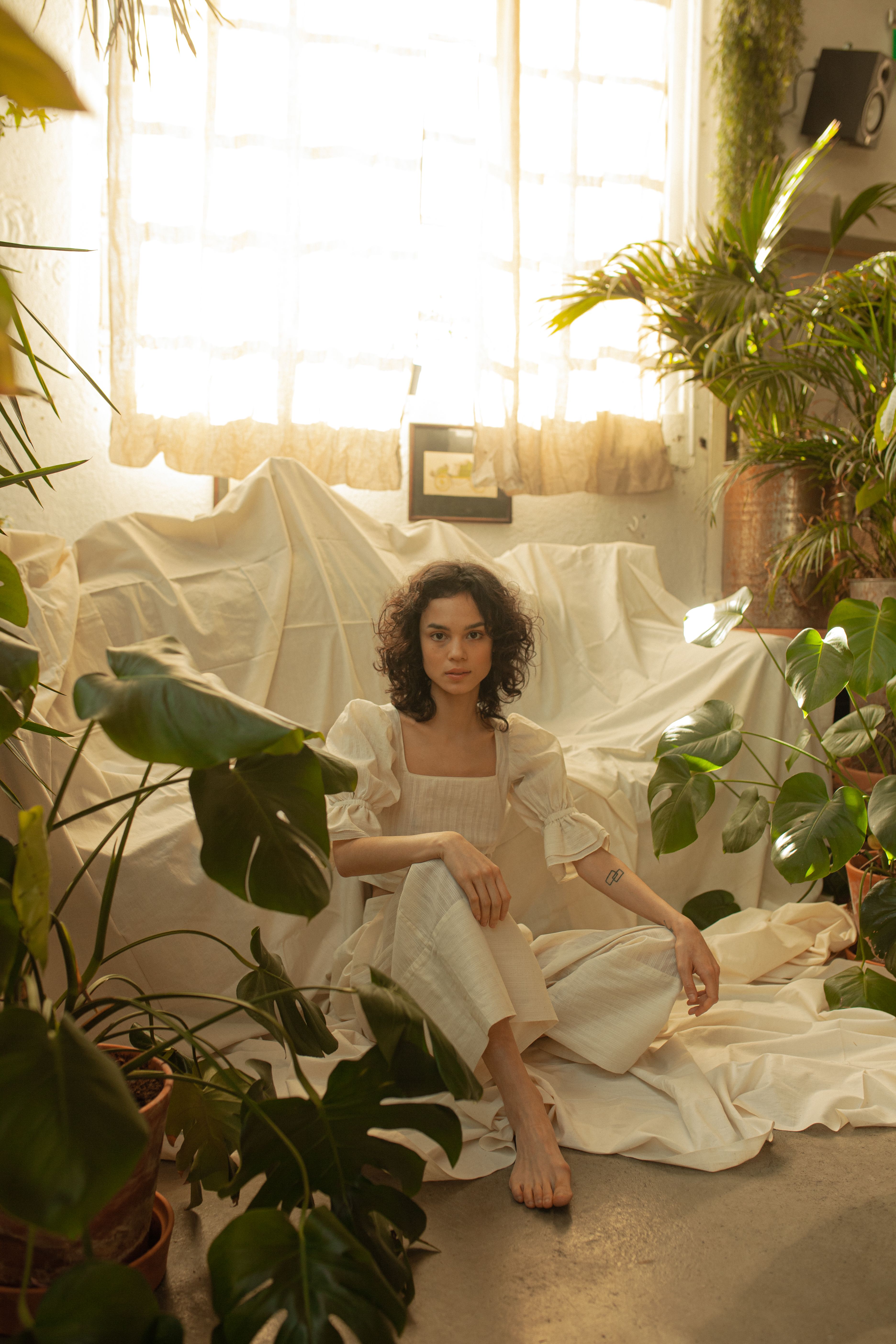
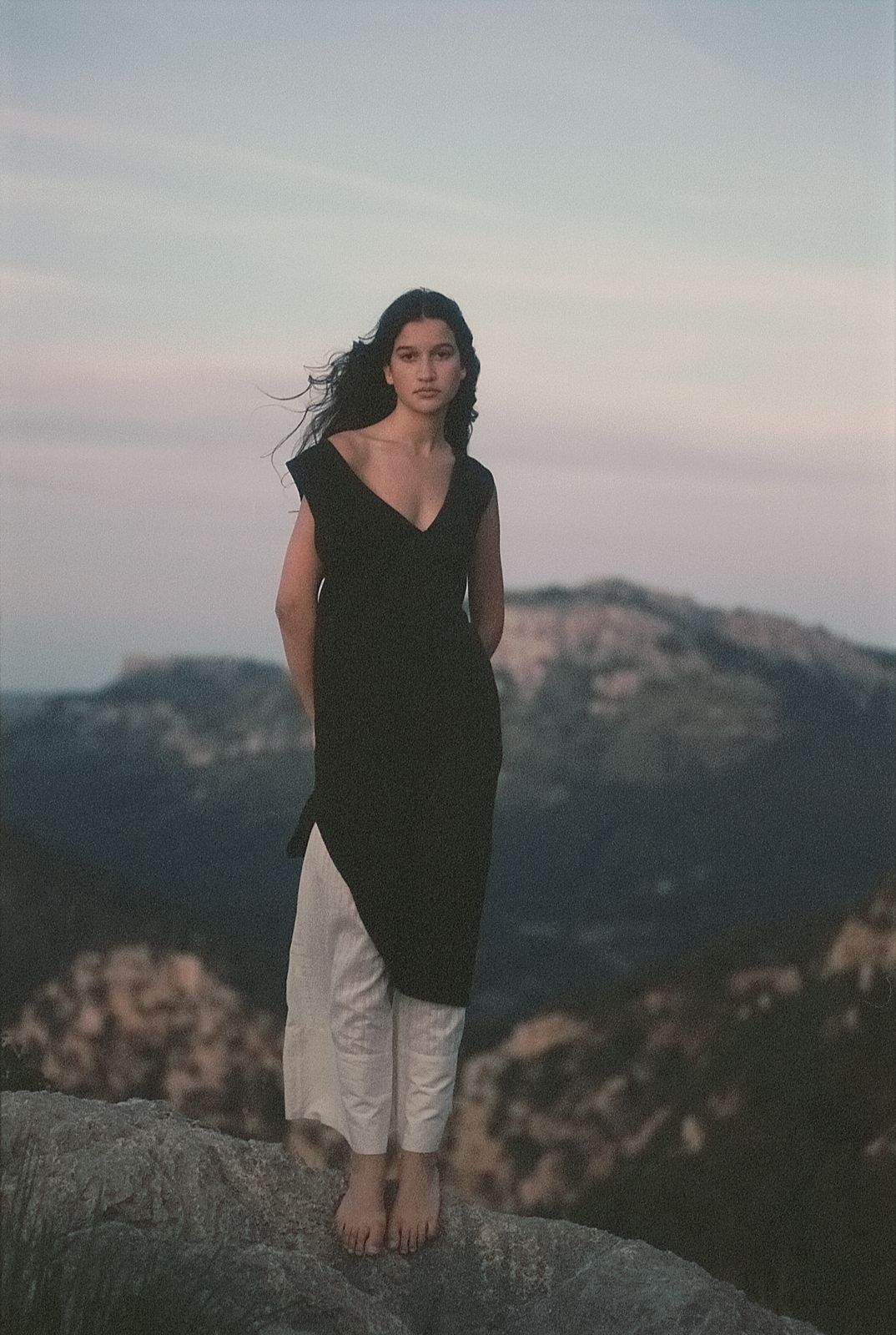
7. Is there a message you would like to give our audiences?
As ‘eco-fashion’ becomes more mainstream, it's become more and more crucial to ask: What are the multifaceted goals of sustainability, and how do we actually get there with fashion?
Sustainability is not one field of study, but rather a collective goal encompassing all sectors and parts of society. This means that you can support this greater goal through whatever intersecting interest or passion you have—whether it be design, business, engineering, fashion etc.
In addition, when you shift your worldviews from human supremacy to biocentrism—seeing humans as members of our greater Earth community rather than separate—it becomes clear that reparative justice within human communities is a part of ecological regeneration. We don’t just need an extinction rebellion that focuses on ecological breakdown and biodiversity loss; we need a biocultural extinction rebellion that recognizes that ecology and the cultures tied to specific landscapes cannot be separated. Healing our ecosystems must go hand in hand with healing historically harmed peoples, supporting Native rights and leadership, and revitalizing place-based languages, knowledge, stories, and cultures. Our efforts in promoting Kala Cotton talks about the same for it recognises the values of Indigenous varieties and natural dyeing techniques that are timeless. Hence it’s been really important for us to produce products made of natural fibres and fabrics that are not trend driven, that can live in your wardrobe, that aren’t (designed to be) thrown away. Our goal is to let the clothes speak for themselves and offer a better option, a less harmful way to dress.
